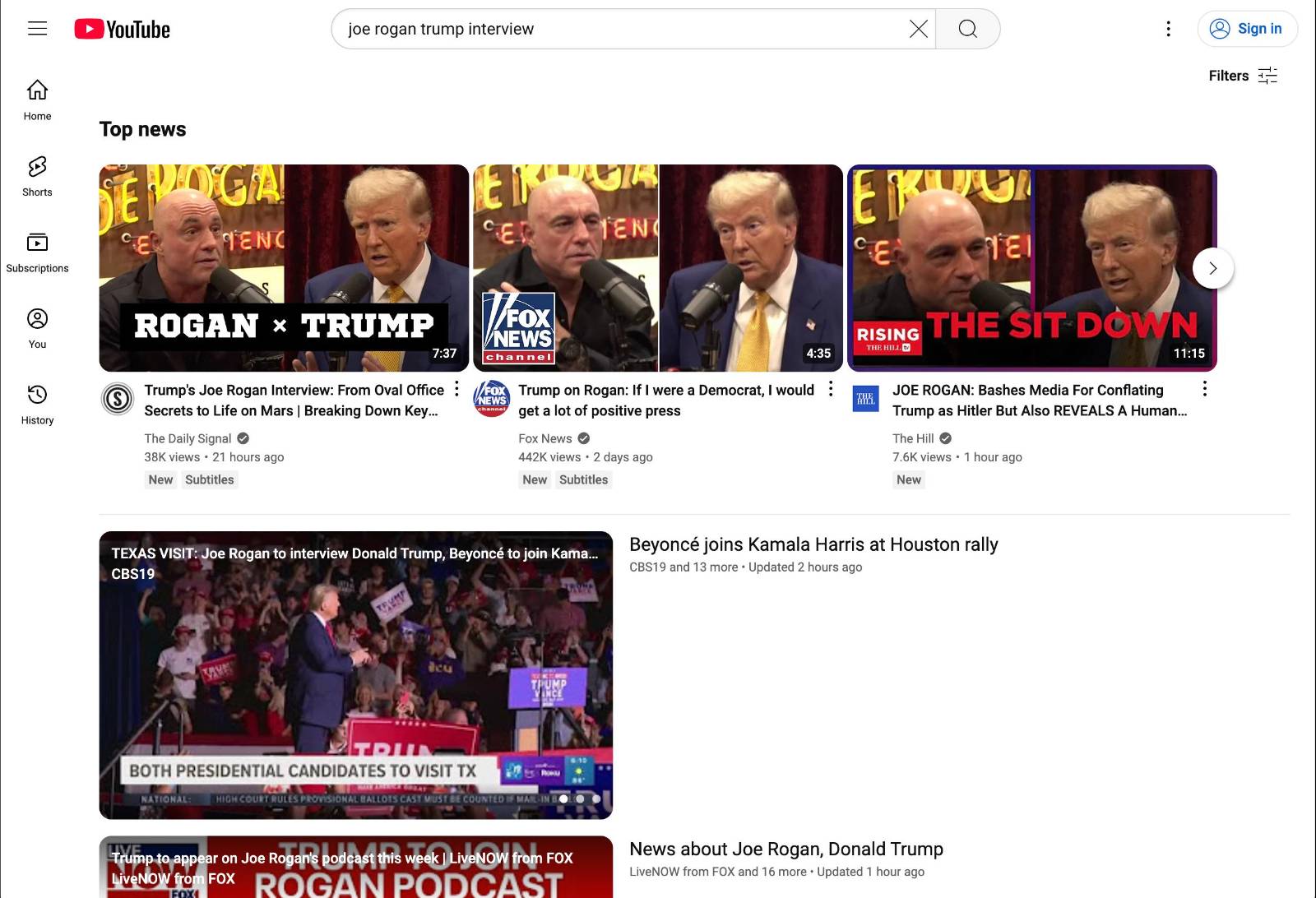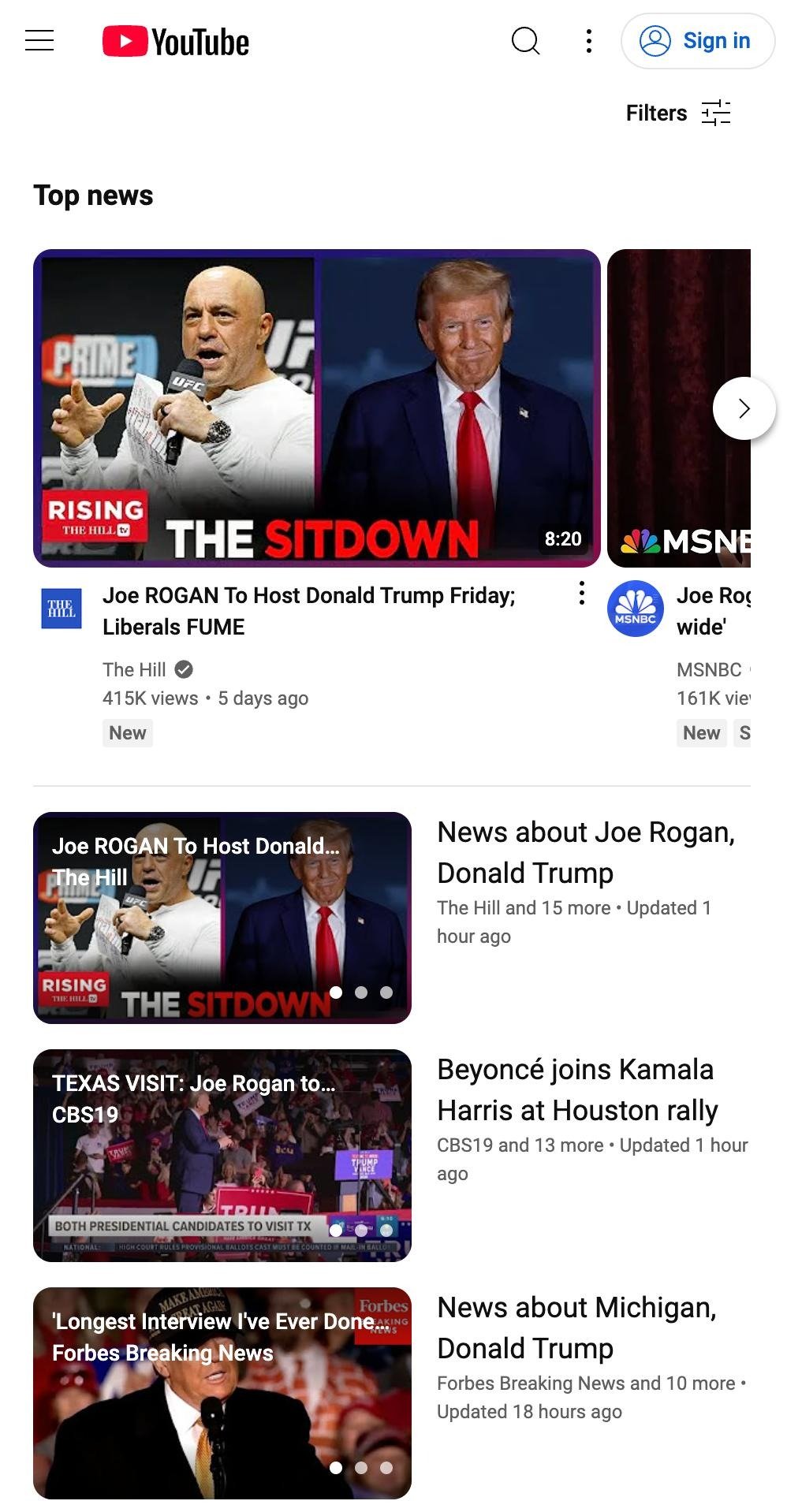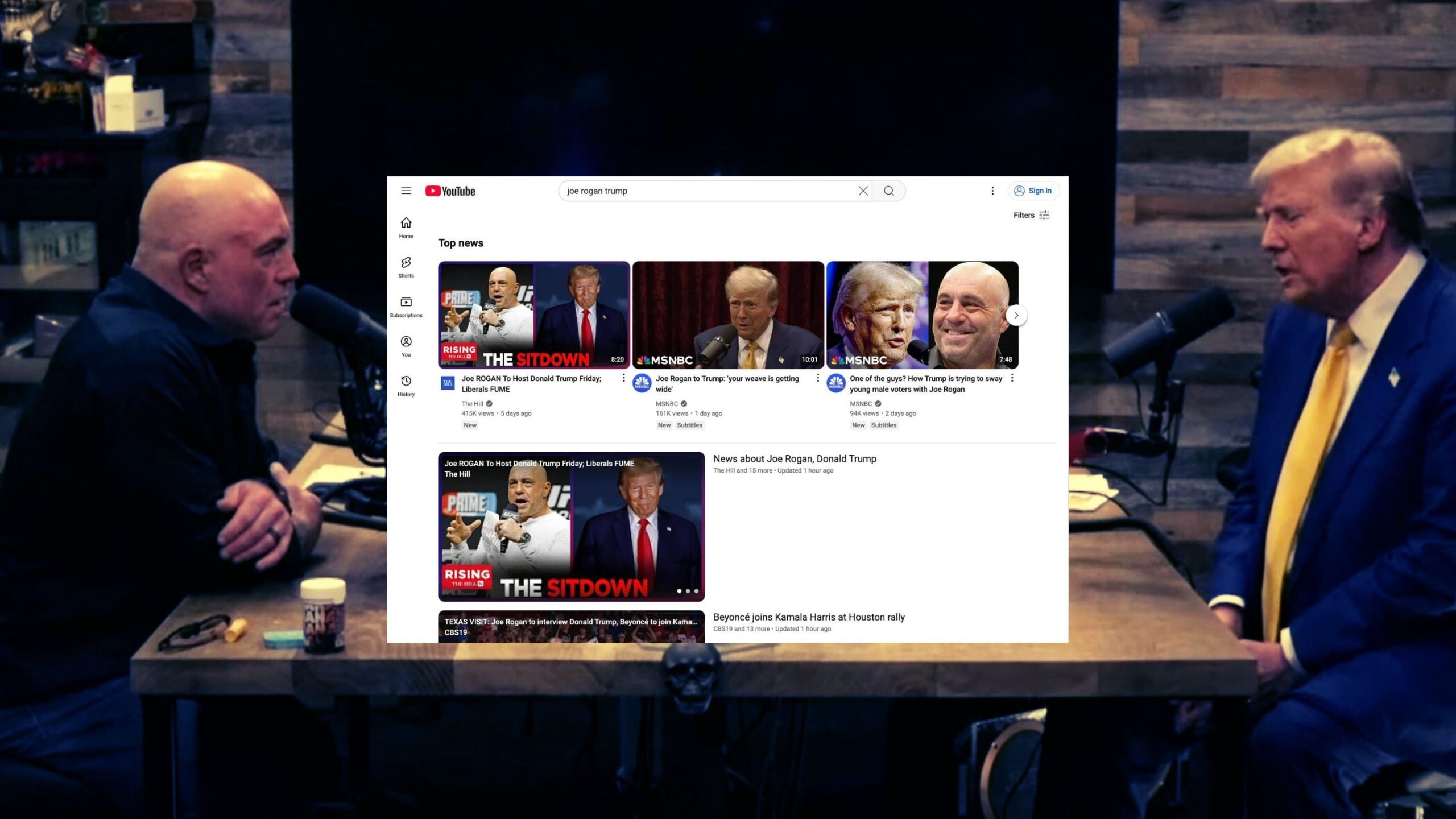With a striking example of digital gatekeeping, YouTube’s search algorithm is steering users toward mainstream media clips rather than the full-length interview of Donald Trump on Joe Rogan’s popular podcast. This phenomenon raises concerns about access to unmediated information and the role of tech giants in shaping political narratives.
Joe Rogan, known for his in-depth, unfiltered interviews, hosted former President Donald Trump in a session that promised to bypass the traditional media’s framing and go directly to the audience. However, those searching for this complete dialogue on YouTube—a platform that hosts Rogan’s full episodes—find themselves navigating through a barrage of mainstream media excerpts instead.

When Reclaim The Net tried the search in a private browser tab, it’s even showing a video of Beyoncé at a Harris rally, which is nothing to do with what was searched for.
YouTube’s algorithm, designed to prioritize “authoritative” sources, appears to be favoring clips from major news outlets over the podcast’s own channel.
This appears to be the algorithm working as YouTube intended during election season. In a recent blog post on how YouTube was preparing for the 2024 election, Leslie Miller, VP of Government Affairs & Public Policy for YouTube said “our systems recommend election news and information from authoritative sources and display information panels at the top of search results and below videos to provide further context.”

These mainstream media clips often lack the full context of the conversation, providing snippets that can be shaped to fit specific narratives. During an election season, the implications of such selective visibility are profound.
This approach contradicts the very purpose of platforms like Rogan’s, which aim to provide an unedited, comprehensive view of conversations, enabling viewers to hear directly from individuals without the intermediate filter of news editors. The reliance on traditional news clips over full interviews also highlights the ongoing tension between new media channels, which offer a direct line to vast audiences, and established media, which continue to wield significant influence over public discourse.













